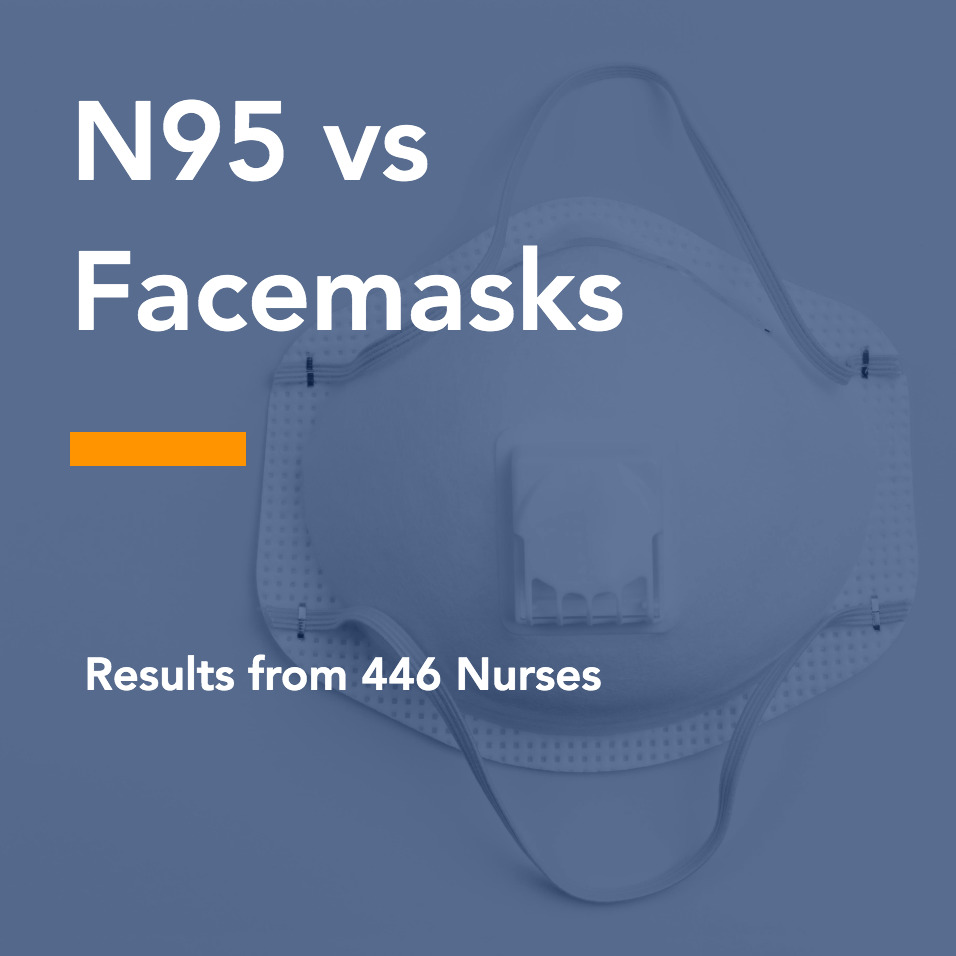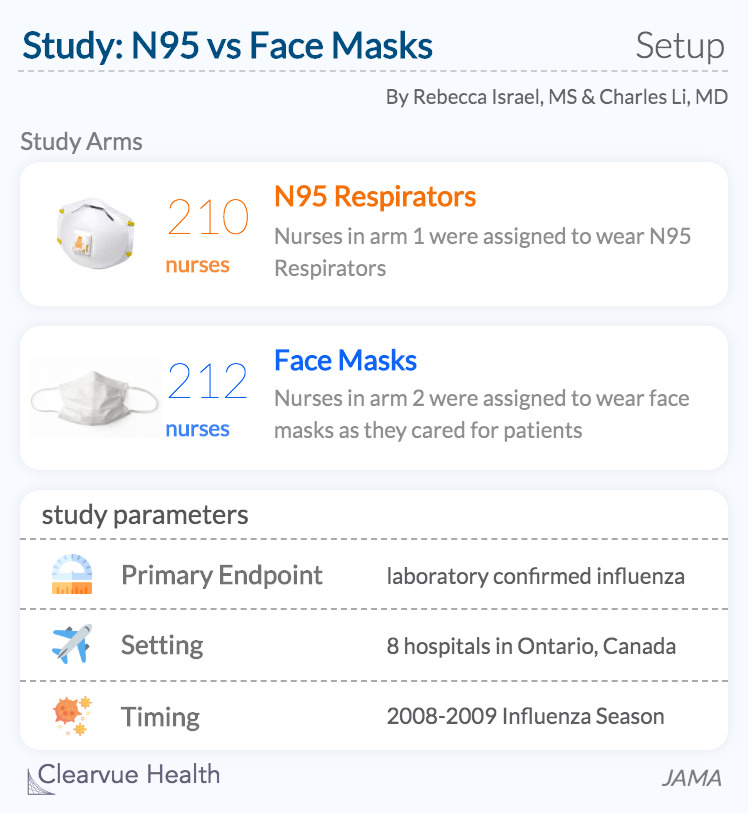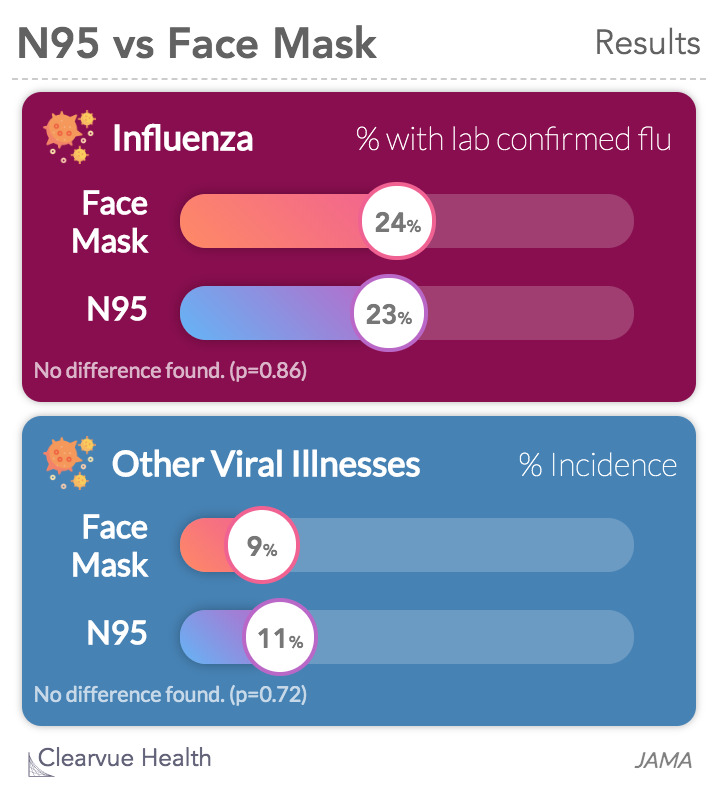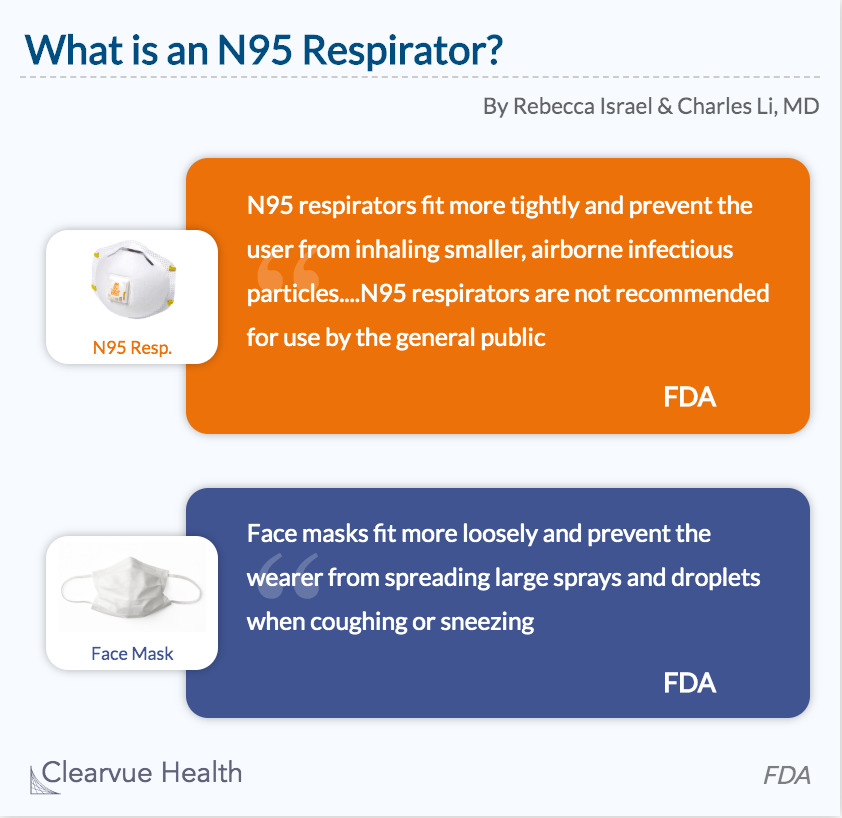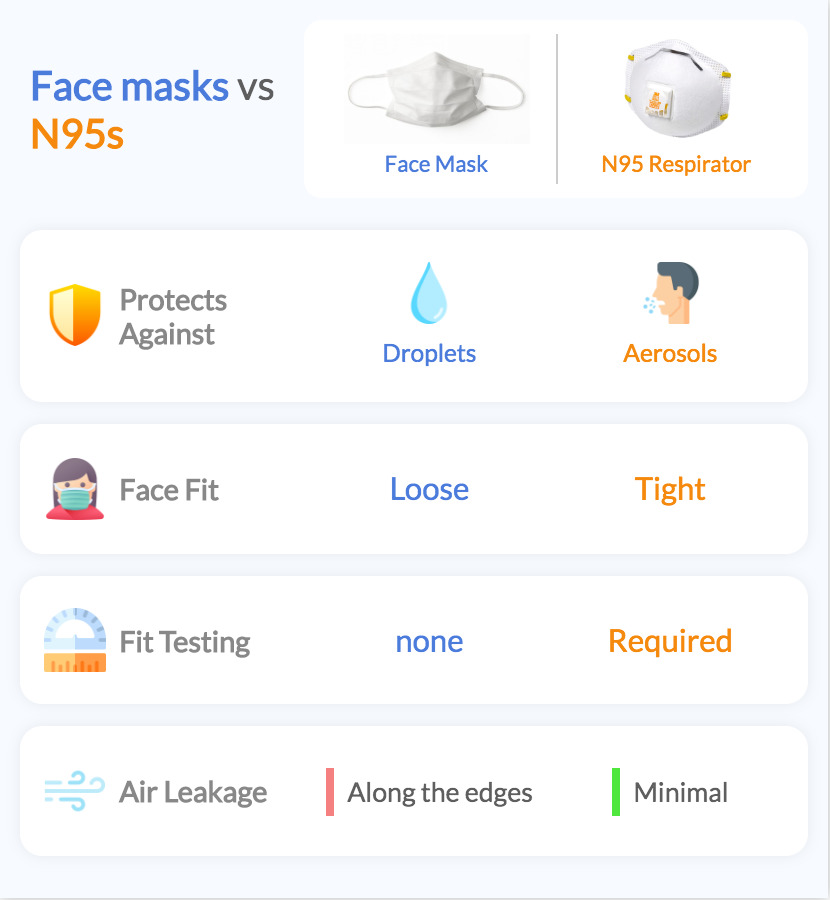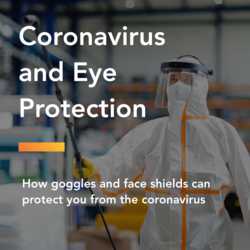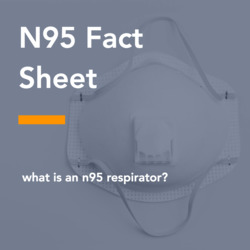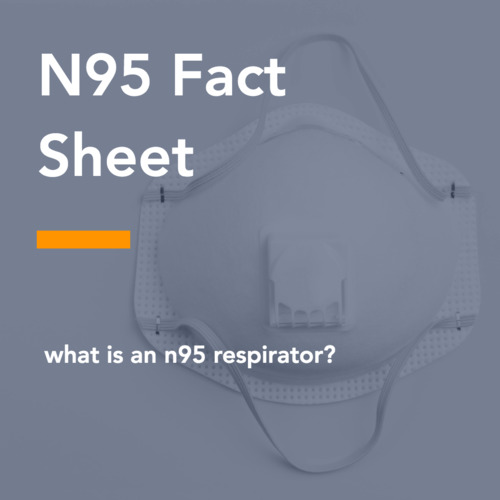Study Design
In 2004, Loeb et al. examined whether Face Masks or N95 Respirators were more effective at protecting healthcare workers from contracting the flu in a clinical setting.
A total of 422 nurses in emergency departments, medical units, and pediatric units in 8 Ontario hospitals were analyzed in the study.
Both study groups had similar vaccination status and demographic characteristics.
Over an approximately 4 month follow-up period, researchers tracked whether or not the nurses contracted the flu or other respiratory infections.
Source: Surgical Mask vs N95 Respirator for Preventing Influenza Among Health Care Workers
Findings
50 nurses (24%) in the face mask arm and in 48 nurses (23%) in the N95 respirator arm were confirmed to have contracted the flu over the study period.
20 nurses (9%) in the face mask arm and in 22 nurses (11%) in the N95 respirator arm experienced other viral illnesses over the study period.
These results are not statistically significant, meaning that no difference in the effectiveness of either mask in protecting against the flu or other viral illnesses was found.
Implications Today
This study tells us that Face Masks and N95 Respirators are noninferior to one another. In the current COVID-19 pandemic, either mask is essential for healthcare workers to protect themselves from contracting the virus when directly caring for patients.
Both types of protective masks should be prioritized for healthcare workers and caregivers, as opposed to the general public. For those who are not in direct contact with COVID-19 patients, the CDC recommends social distancing, hand washing, and covering the nose and mouth with cloth-based face masks.
Basic Comparison
Face Masks and N95 Respirators are used by healthcare workers to protect from the viruses and bacteria present in the patients they encounter.
These protective masks are both meant to shield the mouth and nose. However, there are distinct differences in the function and application of the masks.
Choosing the appropriate mask to wear is dependent on the patient’s illness and how it is transmitted. COVID-19 is not primarily airborne, so either of these masks can be an effective piece of a healthcare worker’s overall personal protective equipment.
The N95 Respirator captures at least 95% of airborne particles, keeping the wearer from breathing them in. N95 Respirators also require fit testing to be effective.
Both masks are meant to be discarded after single-use.
Source: Surgical Mask vs N95 Respirator for Preventing Influenza Among Health Care Workers
